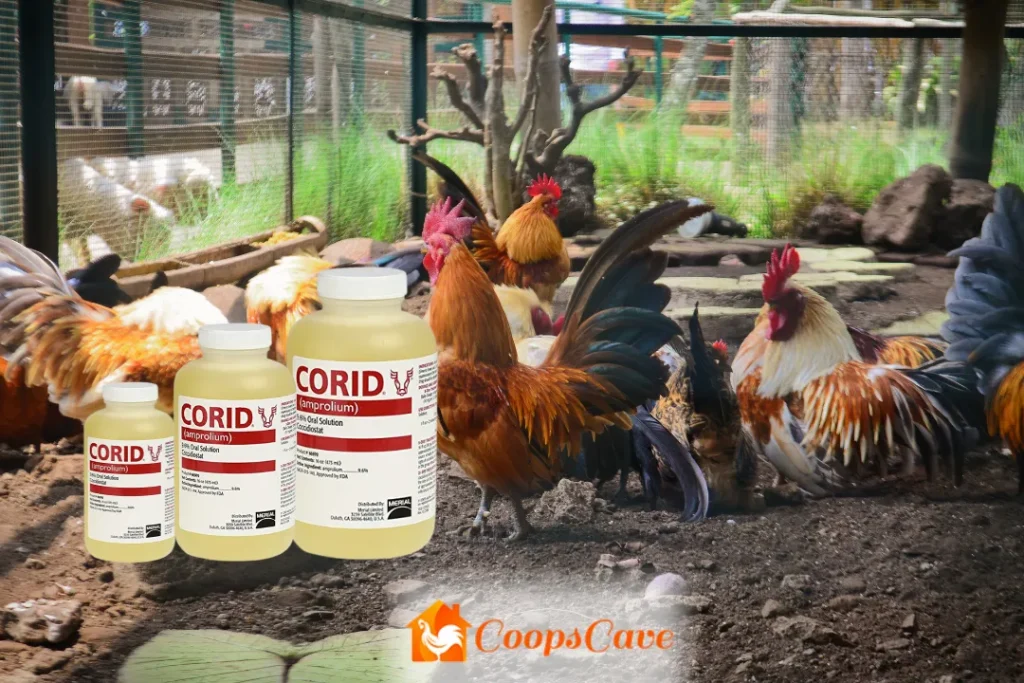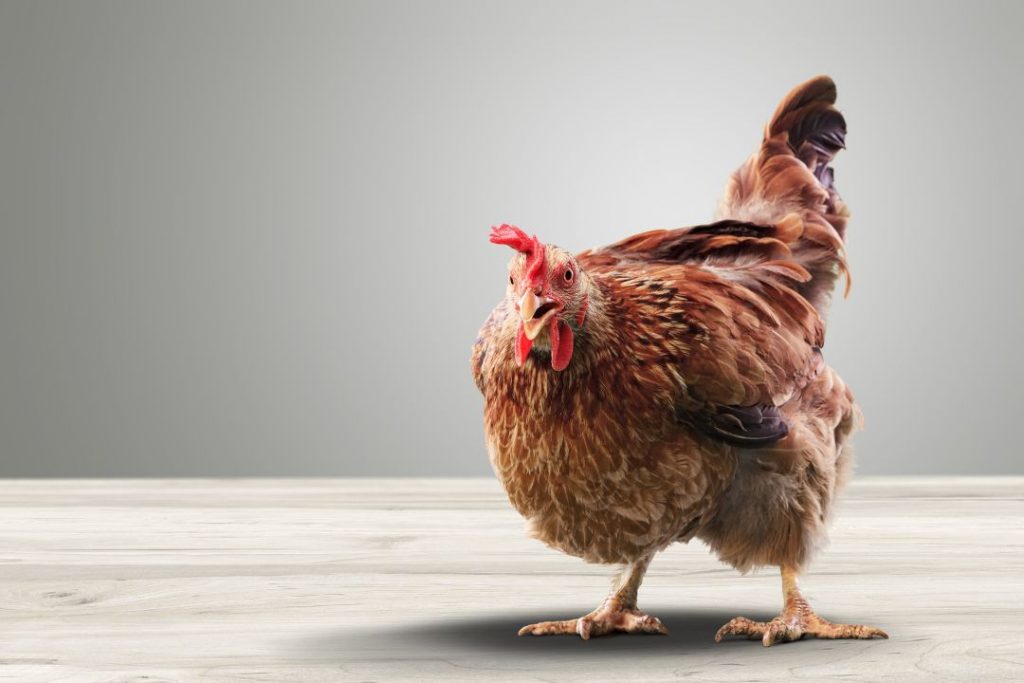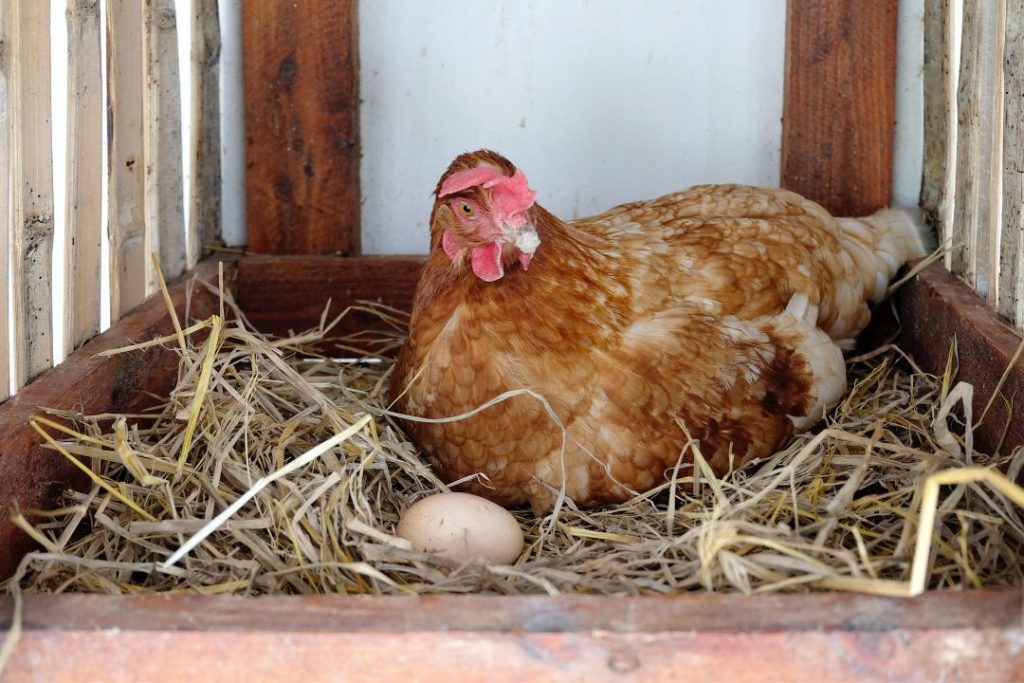“Can you overdose chickens on Corid?” Did this question bother you? If yes, your concern is genuine. If you overdose your chicken with corid, it can impose different risks or difficulties on your bird’s health.
High corid doses block your chicken’s thiamine, leading to deficiency. Thiamine deficiency can cause serious issues in your chicken’s health. While applying corid to your chicken, you must adhere to the recommended dosage.
Corid is a highly effective treatment for coccidiosis. But its safe usage is crucial to prevent overdose. If you have concerns about using Corid on chickens, alternatives are available.
This article aims to provide an in-depth answer to this query. It will explain how your feathered friends stay healthy and productive.
What Is Corid?
Corid, scientifically known as Amprolium, is a widely recognized medication in the poultry industry. It’s primarily used to combat coccidiosis, a prevalent parasitic disease that affects your chickens. Here’s a deeper dive into what Corid is:
- Chemical Composition: Corid is a chemical compound closely resembling thiamine, also known as Vitamin B1.
- Function: The medication functions by imitating thiamine, a nutrient the coccidia parasite relies on for growth and multiplication. By doing so, Corid effectively starves the parasites, halting their development.
- Form: Corid comes in a soluble powder and a liquid concentrate. Both forms are designed for easy administration.
- Safety: Corid is generally safe for chickens at the recommended dosage. However, like any medication, misuse can lead to adverse effects.
Why Use Corid?
Coccidiosis is a significant threat to poultry, particularly young chicks with undeveloped immune systems. Corid has become a preferred treatment for several reasons:
- Effectiveness: Corid is highly effective in controlling and treating coccidiosis. It targets the parasites directly, disrupting their life cycle and preventing them from causing further harm.
- Ease of Use: Administering Corid is straightforward. It’s typically mixed with drinking water, allowing easy distribution among a large flock.
- Fast-Acting: Corid works quickly, often showing improvements in the flock’s health within a few days of starting treatment.
- Preventive Measure: Besides treating active infections, Corid can also be used preventively, especially during periods of stress when chickens are more susceptible to coccidiosis.
- Cost-Effective: Compared to other treatments, Corid is relatively affordable, making it a practical choice for small-scale backyard keepers and large-scale poultry farmers.
Corid plays a crucial part in treating coccidiosis. Many poultry keepers turn to it as their go-to solution due to its distinct mode of action, simplicity, and cost-effectiveness.
It is crucial to utilize it appropriately to prevent adverse effects like thiamine shortage. Before giving any medication to your flock, always get advice from a veterinarian or a poultry expert.
Can You Overdose Chickens On Corid?

The possibility of overdosing chickens on Corid is a genuine concern. Like any medication, Corid can be harmful if you give it to your chicken excessively.
Whether or not you can overdose chickens on corid, you will get more details by going through the points below:
- Overdose Risk: Corid is beneficial in treating coccidiosis. But it can pose a risk if given in doses higher than recommended.
- Thiamine Blockage: The mechanism that makes Corid effective against coccidia—its thiamine-mimicking action—can also lead to problems. Corid can block thiamine uptake in high doses in your chickens, leading to a deficiency.
- Thiamine Deficiency: Thiamine, or Vitamin B1, is crucial for various bodily functions in chickens, including nerve function and carbohydrate metabolism. A deficiency can lead to your chicken’s serious health issues.
- Dosage Importance: The risk of overdose underscores the importance of adhering to the recommended dosage. Always consult with a vet or poultry expert for accurate dosing instructions.
What Are the Signs Of Corid Overdose?
Recognizing the signs of Corid overdose is crucial for the health and well-being of your flock. If you notice any of the following symptoms, it’s essential to stop administering Corid and consult a vet immediately:
- Weakness: Chickens suffering from a Corid overdose may appear weak and lethargic. They may not be as active as usual and prefer sitting or lying.
- Unsteady Movements: Affected chickens might exhibit unsteady or shaky movements. They may struggle to walk straight or maintain their balance.
- Loss of Appetite: Chickens who overdosed on Corid may lose their appetite. Decreased food consumption can cause your bird’s weight loss and other health complications.
- Changes in Droppings: Changes in the color, consistency, or frequency of droppings can also indicate an overdose.
- Neurological Signs: In severe cases, thiamine deficiency can lead to neurological signs like circling, head tilting, and seizures.
How To Safely Usage Corid?
Corid’s safe usage is essential to ensure your chicken’s health and well-being. To safely use corid on your chicken, follow the instructions below:
- Recommended Dosage: The standard dosage for Corid is 10mg per kg of body weight, administered for 5-7 days. Without causing harm to your chickens, this dosage will work effectively against coccidia.
- Administration: Corid is typically mixed with your chickens’ drinking water. Ensure the water is changed daily to maintain the potency of the medication.
- Monitoring: Keep a close eye on your flock during the treatment period. Monitor for signs of improvement or any adverse reactions.
- Veterinary Consultation: Consult a vet or a poultry expert before starting any medication regimen. They can provide accurate dosing instructions based on the specific needs of your flock.
- Post-Treatment Care: After the treatment period, consider supplementing your flock’s diet with Vitamin B1 to counteract any potential thiamine blockage caused by Corid.
What Are The Alternatives to Corid?
If you’re concerned about the risks of overdosing on Corid, there are other treatments for coccidiosis. However, their effectiveness may vary, and they should always be used under veterinary guidance:
- Sulfa Drugs: Sulfa drugs, such as sulfadimethoxine and sulfamethazine, are another common treatment for coccidiosis. They inhibit the coccidia’s growth. But sulfa drugs can have side effects like egg withdrawal in laying hens.
- Natural Remedies: Some poultry keepers opt for natural remedies like oregano oil and apple cider vinegar. These can boost your chicken’s overall health and immunity. Their effectiveness against coccidiosis is less well-studied than Corid or sulfa drugs.
- Preventive Measures: A proverb states, “Prevention is always better than cure.” Maintaining clean living conditions, providing a balanced diet, and reducing stress can help prevent coccidiosis outbreaks.
- Vaccination: Vaccines are available for coccidiosis. They expose chickens to controlled coccidia, helping them develop immunity.
Final Thoughts
And that’s the end of this comprehensive guide on “Can you overdose chickens on Corid?” Corid overdose is harmful to your chicken.
It’s possible to overdose chickens on Corid. But you can prevent the overdose issue through careful dosage and monitoring. Remember, the key to healthy chickens is effective disease management, good nutrition, clean living conditions, and regular health checks.


